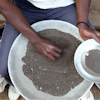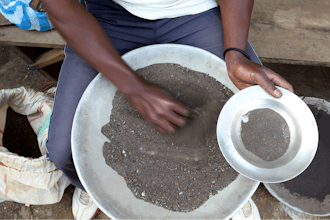GENEVA (AP) -- The United States, Europe and other commercial powers grappled Wednesday with the magnitude of their failure to reach a new global trade pact, and traded blame for the collapse of seven years of talks.
A day after a nine-day World Trade Organization summit ended without agreement, Peter Mandelson, the European Union's top negotiator, said he had tried to broker a deal on the farm import issue that ultimately divided the United States and developing countries led by China and India.
While both sides rejected the compromise, Mandelson reserved his sharpest criticism for U.S. Trade Representative Susan Schwab, accusing her of refusing to budge even when her demands were met and then going public with her grievances too quickly.
"It is bad enough to be facing defeat in the last mile of such a marathon," Mandelson wrote Wednesday in his blog. "It's worse to realize that some of the people across the table, instead of working for success, are in reality preparing for failure."
The U.S. rejected his description of events behind closed doors at the WTO's Geneva headquarters. Gretchen Hamel, a spokeswoman for Schwab, noted that the EU's renegotiating was rejected by multiple countries, and was aimed to "deflect attention from the EU's own domestic concerns."
These would include Europe's own defensiveness to opening up farm markets to imports of beef, poultry, sugar and other products. Agricultural imports are especially sensitive in France, where President Nicolas Sarkozy has regularly pointed the finger at Mandelson for conceding too much to competitors in the developing world.
Mandelson's criticism of the U.S. comes after weeks of close cooperation between the trans-Atlantic partners. Over the weekend, he told trade ministers from the EU's 27 member countries that he and Schwab were "joining up, but not ganging up" to push the negotiations forward.
While the trade talks launched in the Qatari capital of Doha in 2001 have struggled before, this failure was perhaps the most devastating. Faced with global unrest from rising food prices, credit problems from shaky financial markets and the threat of economic downturn, negotiators hoped that a deal this week to open farm and industrial markets would go some way to alleviating these problems.
The collapse was all the more painful as negotiators made more progress than they had in years on issues such as farm subsidies and manufacturing tariffs, which were responsible for breaking previous high-level trade efforts.
But the talks hit a snag over an obscure "safeguard" for protecting agricultural producers in the developing world from a sudden surge in imports or drop in commodity prices. While such safeguards currently exist in rich and poor countries, they are rarely used and reflect only a minute portion of the billions of dollars in manufacturing, farm and services gains the WTO's Doha trade round was supposed to create.
Schwab told journalists Wednesday the dispute with China and India "really wasn't a political discussion" but one over trade policy. She said the two emerging powers were demanding a "free-for-all" that would regularly allow them to raise tariffs on goods such as soybeans, poultry and palm oil, hurting American exporters.
That, Schwab argued, went against the basic idea of the WTO's current trade round, which is to alleviate poverty and boost the global economy by making it easier to export farm produce and manufactured goods.
"It would have been a very sad commentary on a development round if the conclusion had resulted in higher barriers to trade leaving the round, than those we had coming in," she said.
While Schwab is likely to leave her post when President Bush's term ends in January, she said she hopes that the gains of the meeting could be saved and that smaller, more sector-specific agreements could be reached.
India's trade minister also said he wanted to preserve offers on the table, but added that he would not bend on the question of farm import protection.
"The vulnerability of poor farmers cannot be traded off against the commercial interests of developed countries," Kamal Nath said.
The most significant WTO meeting in three years aimed to pull off a broad compromise that, in short, would have let poor countries sell more produce to rich countries while giving the U.S., 27-nation EU and Japan new chances for their manufacturers and service providers in the emerging markets of Brazil, China and India.
This was the trade off that eluded a WTO ministerial meeting in Cancun, Mexico, in 2003, and Hong Kong two years later. Gatherings in Geneva in 2006 and Potsdam, Germany, last year also failed to produce the breakthrough, but pressure was higher this time because of the likelihood that the U.S. and other key trading powers would lose interest amid administration changes over the next couple of years.
WTO chief Pascal Lamy said it was too soon to say where the talks should go from here.
"We will need to let the dust settle a bit," said Lamy, whose own term as director-general ends next year. "WTO members will need to have a sober look at if and how they bring the pieces back together."






















